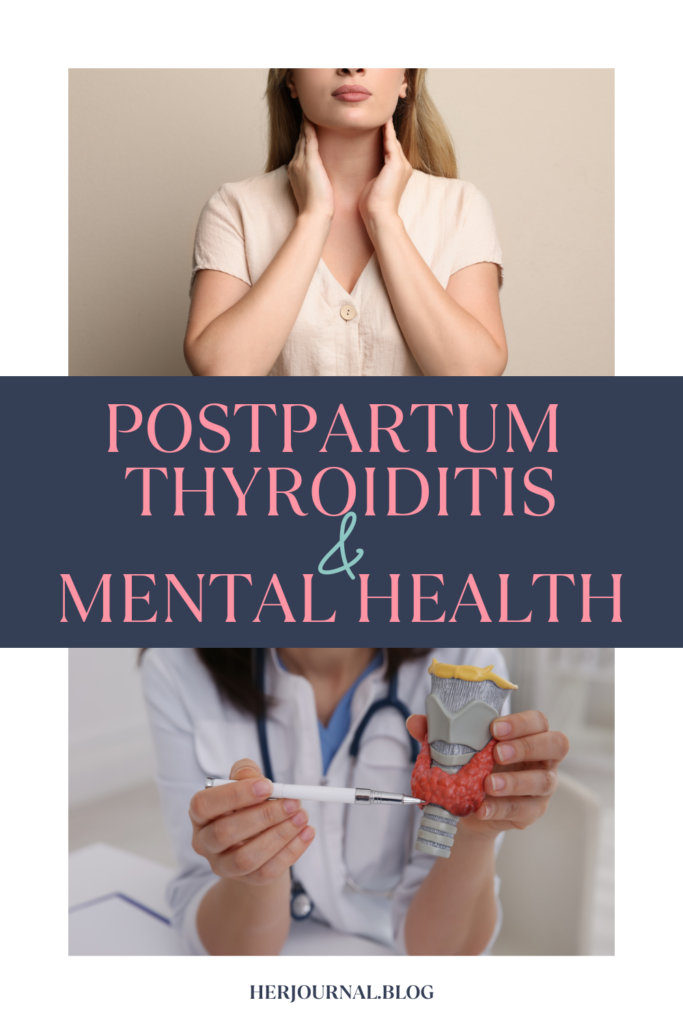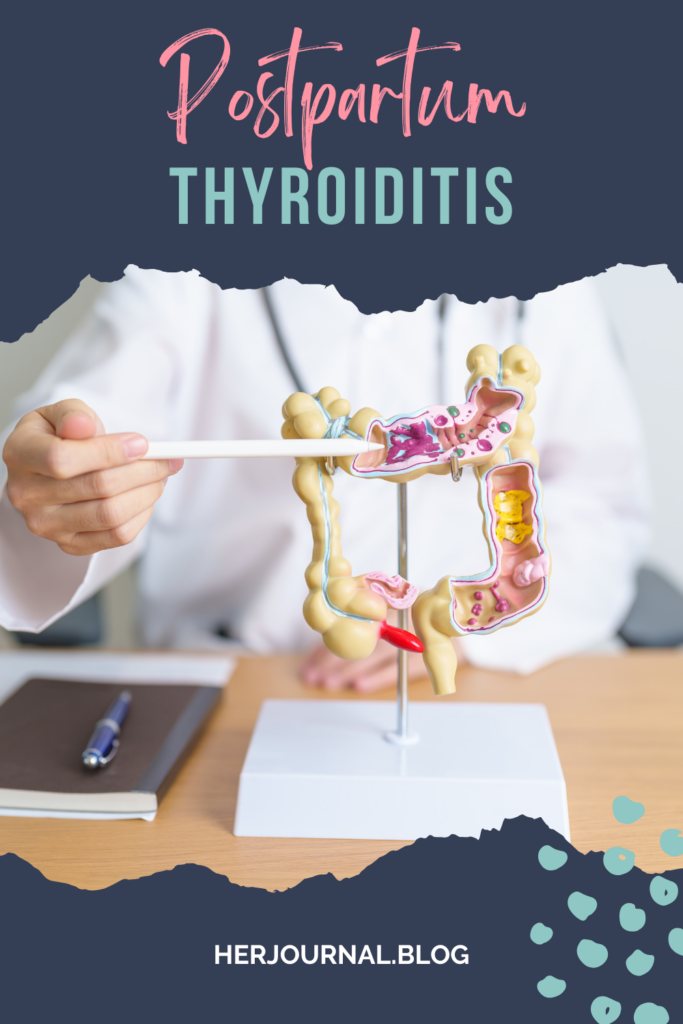We may earn money or products from the companies mentioned in this post.
Last Updated on December 4, 2024 by Samantha Flores
It is unfortunate that new mothers do not receive additional care after the six-week postpartum check-up visit. Many things can happen during the first year postpartum, such as struggling with postpartum thyroiditis. If you didn’t know this was a thing, I encourage you to keep reading to learn more about it, the symptoms, and how to treat it.
After your postpartum check-up, you are sent on your way with little to no additional information about what to expect or what to look out for in the future months. Yes, you may be given information about postpartum depression, but even that information is given loosely.
That first year after birth is critical to your mental and physical health. It’s time to advocate for yourself because you deserve the best care and your family deserves the best version of you.
Related: Postpartum Hormone Imbalance: How to Understand Your New Body

What is Postpartum Thyroiditis?
According to Johns Hopkins Medicine, postpartum thyroiditis occurs when a postpartum woman’s thyroid gland becomes inflamed within one year of delivering a baby, having an abortion, or having a miscarriage.
Current research shows that this condition affects a small percentage of postpartum women. The symptoms of postpartum thyroiditis are also attributed to postpartum depression. However, postpartum depression is severely underreported.
As a mom of three and a postpartum advocate, I would venture to say that additional research is needed for postpartum thyroiditis due to the underreported symptoms of postpartum depression. New research would likely show this condition affects even more women than previously estimated.
Postpartum thyroiditis comes in two forms: hyperthyroidism and hypothyroidism. Read below to understand each form and how to tell the difference. Remember that symptoms can vary from woman to woman.
Related: The First Month Postpartum: What to Expect After Birth
Hyperthyroidism
Hyperthyroidism is the term for an overactive thyroid. The gland is overproducing the hormones in your bloodstream.
Symptoms can include:
- Muscle weakness
- Feeling warm or sweaty
- Anxiety
- Fast heartbeat or palpitations
- Weight loss
- Loss of focus

Hypothyroidism
Hypothyroidism is the term for an underactive thyroid. The gland isn’t producing enough hormones into your bloodstream.
Symptoms can include:
- Constipation
- Weakness
- Weight gain
- Memory loss
- Feeling cold
- Extreme tiredness or fatigue (lack of energy)
- Muscle cramps
Related: Postpartum Body Changes: How to Accept the New You
How to Treat Postpartum Thyroiditis
If you suspect that postpartum thyroiditis is affecting you, now is the time to treat it. Follow below for tips on how to treat it.
Blood Tests
The first step to treating postpartum thyroiditis is to contact your doctor and request blood tests. This condition is primarily diagnosed through blood tests that measure your body’s thyroid hormone levels (T3, T4, and TSH).
Physical Exam
In addition to blood tests, your doctor will also likely perform a physical exam on you. This will include palpating your thyroid gland (found in your neck). Your doctor will feel around for any abnormalities. During this exam, your doctor will also review your symptoms and ask you additional questions to help with a diagnosis.
Related: The Postpartum Period: How to Survive After Birth

Medication
Medication can be helpful in treating postpartum thyroiditis. However, depending on which form of the disease you have, the medication prescribed will vary. In addition, your provider will take into consideration the severity of your symptoms, your age, and overall health before prescribing medications.
Diet
Your diet can affect your thyroid function. Iodine and fiber can contribute to postpartum thyroiditis. Too much iodine can create hyperthyroidism while too little can create hypothyroidism. Too much fiber can prevent your body from absorbing the hormones needed to keep your thyroid functioning.
In addition, processed meats and gluten can have a negative impact on your thyroid. In processed meats, there are many additives and nitrates that can actually aggravate your thyroid. Some research shows that celiac disease (gluten intolerance) and thyroid issues are often linked together.
It is important to also assess your diet when you are considering how to treat postpartum thyroiditis. While diet won’t necessarily cure the disease, it can help with the symptoms.
Additional Information About Postpartum Thyroiditis
Take a look at important information you should know if you are suffering from the disease:
- Postpartum thyroiditis can begin as hyperthyroidism and then later turn into hypothyroidism.
- There is no known cause for postpartum thyroiditis.
- You are more likely to become diagnosed with postpartum thyroiditis if you had anti-thyroid antibodies before pregnancy.
- Postpartum thyroiditis typically occurs 4-8 months postpartum.
- Most women experience normal thyroid function roughly 12-18 months postpartum.
- Approximately 80% of women will regain normal thyroid function, while the remaining few may have permanent thyroiditis.
Related: Postpartum Nutrition: What Mothers Need After Giving Birth

Postpartum Thyroiditis Doesn’t Discriminate
Postpartum thyroiditis can take months to appear, which makes it even more important to advocate for your health. If you feel something is wrong, ask for blood work and a treatment plan. While this condition can clear up between 12 and 18 months postpartum, it doesn’t mean that you have to just deal with it. Take the steps you need to cope and survive this challenge.
This disease doesn’t discriminate based on how much money you make or how “put together” you think you are. It can happen to anyone. Don’t let it control your life. Reach out to your doctor for further testing and evaluation. You can get through this!
Pin It!




